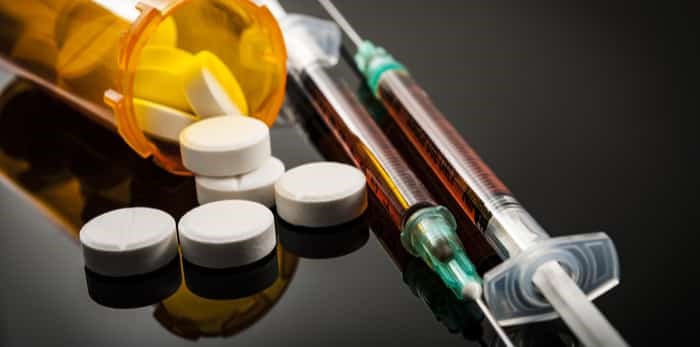There is currently an overdose epidemic in our province. the death toll provincially at over 100 people per month. Street drugs are laced with fentanyl, which is resulting in overdoses. Drug addicted individuals are taking their lives into their own hands when using substances purchased on the street.Â
 Opioid epidemic / Shutterstock
Opioid epidemic / Shutterstock
The current supply of fentanyl from overseas has made the crisis worse. Canadian pharmacists have taken to in order to sell the drugs on the street, as they can fetch a higher price.
The Government has rightly . Despite this declaration in 2016, overdose death tolls continue to decline. In addition, the Government has against drug manufacturers for their role in the opioid epidemic. However, it is inevitable that this lawsuit will be tied up the courts for years to come. The lawsuit will not solve the opioid crisis or provide assistance to those who need it now. It will only allow the province to recover the costs associated with it.
Currently the cost of opioid addiction treatment . Something must be done, and something must be done immediately.
The Government of British Columbia must commit to providing a safe supply of opioids to drug addicted individuals.
This suggestion .  In fact, studies in Europe have shown that access to a safe and lawful supply of opioids has ²õ¾±²µ²Ô¾±´Ú¾±³¦²¹²Ô³Ù±ô²â.Ìý
While the trafficking and use of opioids that are not prescribed remains illegal in Canada, the provincial government has the power to effectively decriminalize and regulate in the area of criminal law where it is related to a valid provincial power.
A good example of this is the government’s decision to effectively decriminalize impaired driving in British Columbia. This issue was addressed by the Supreme Court of Canada in Goodwin v. British Columbia (Superintendent of Motor Vehicles). There, the Supreme Court of Canada determined that the province was permitted to write and use legislation that replaced criminal prosecutions for impaired driving because such legislation related to a valid use of the provincial power over roads and highways in British Columbia.
Even in the controlled substance context this is not new. Municipalities like Nelson, Vancouver, and Victoria created and effectively ran a lawful system for cannabis dispensaries. Before cannabis legalization, the Â鶹´«Ã½Ó³»Police Department ceased forwarding charges to the Crown for personal possession of cannabis. This was as a result of a decision by the City and the police force not to use resources on these offences. In Â鶹´«Ã½Ó³»and Victoria, police protected rather than raid dispensaries. Even now, despite the fact that no dispensaries in Â鶹´«Ã½Ó³»are operating lawfully, the police are not raiding them.
Providing a safe and lawful supply of opioids to addicts could be done in much the same way. By relying on the constitutional grant of power over healthcare in the province, and recognizing that this is a pressing and substantial concern over public health and safety, the Government could permit addicts to obtain, for free, opioids from dispensaries in order to prevent overdose deaths.
This does not have to be an operation of government drug trafficking. Those who are seeking opioids could also be provided with information about treatment options, and given an opportunity to slowly wean themselves off the drug. This would eliminate many of the concerns surrounding the health and relapse risks for those who are attempting to withdraw from opioids without medical support. Many treatment centres do not accept individuals who are currently using, and this mechanism could help put people in a position in which they can access residential treatment without barriers.
This would save lives. This would keep addicts from having to access drugs laced with fentanyl. This would undermine the profitability of the black market. And this would ultimately save money as the cost of addiction treatment and addressing the death toll would decrease significantly over time.
It is time for the BC Government to take action. It is time for the British Columbia Government to provide a safe and lawful supply of opioids to drug-addicted individuals. Before it is too late.


.jpg;w=120;h=80;mode=crop)